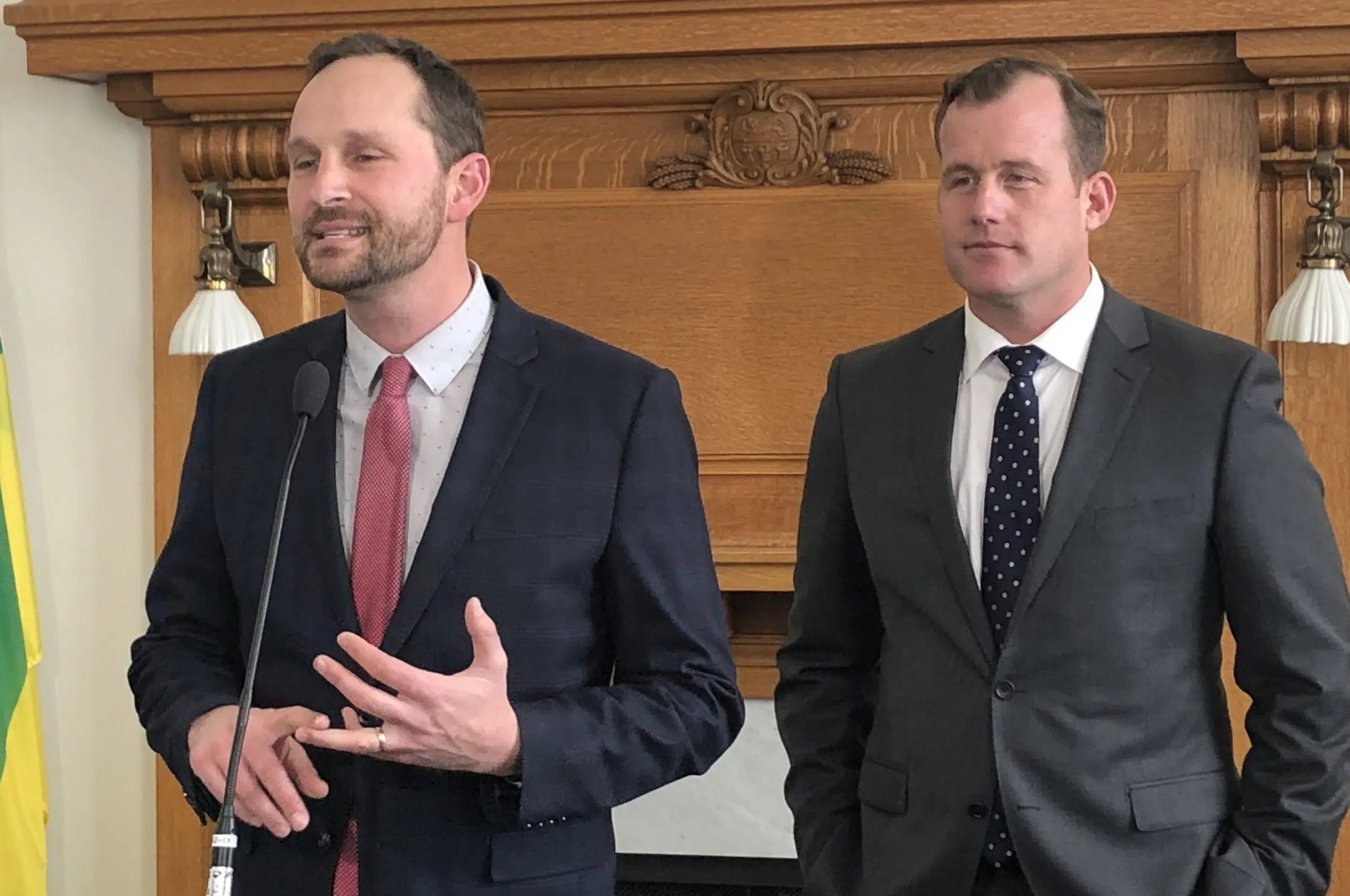The NDP argued the 2019-20 provincial budget fails to live up to its promise of being balanced.
“It isn’t a balanced budget because we’ve seen the debt increase by $1.8 billion,” said leader Ryan Meili.
While the operating debt will not increase, most of the growth to the overall public debt comes from the capital debt, which increases from approximately $4.2 billion to $5.4 billion. Revenue is also higher than expenses in this budget, leaving a surplus of $34.4 million.
The budget also includes $1.9 billion in operating funding for school divisions, up more than $26 million compared to last year. That completes the restoration of $54 million cut from education two years ago.
There is no new money for advanced education, which remains unchanged from last year at $727 million.
Meili said the biggest failure the government has taken in this budget is failing to invest enough in education at a time when classrooms are becoming more crowded and need more help than ever.
“That’s not balanced because they’re leaving the deficit in our classrooms,” said Meili. “If we’re thinking at all about the next generation and how to grow this province the right way, that’s where the investment should be.”
The NDP also argued there’s no balance at home when it comes to every-day people who are struggling. The PST expansion remains on items like construction labour, restaurant meals, children’s clothing and insurance premiums.
The NDP has been calling for an increased focus on mental health and the government responded with the largest commitment ever. It’s increasing spending on mental health services by $30 million, which includes funding for 140 new beds for mental health and addictions treatment.
“We’re happy to see that some of the drums that we’ve been beating, they’ve finally listened,” said Meili.
“We fought like heck for the people across this province who are facing darkness and despair without the supports that they deserve but this is still just a start,” said Finance Critic Trent Wotherspoon.
The NDP said Saskatchewan is barely playing catch-up with the rest of Canada on mental health spending. Wotherspoon also argued the funding announced in the budget doesn’t respond to the crystal meth crisis in the province.
Meili, a former doctor, wants to see addictions funding on the curative side to help people when they’re in a crisis. He would also like to see more funding for emergency help, increasing access to counselling and psychological support so the patients’ needs are addressed before they reach the crisis point.
Other reactions
Scott Livingstone, the CEO of the Saskatchewan Health Authority, was pleased with the government’s focus on mental health and addictions in the budget.
“To see those investments today aligned with the priorities of the organization, it was important for us,” Livingstone said.
Part of the investment will go toward staffing at the new Saskatchewan Hospital North Battleford. The government’s funding also will help put 140 new community-based beds across the province.
For Saskatchewan Teachers Federation president Patrick Maze, the government’s increased investment in education doesn’t address the growing size of classrooms.
“Enrolment has gone up by almost 8,000 just in the last few years and this doesn’t address that,” Maze said. “That said, it’s a step in the right direction.”
Shawn Davidson of the Saskatchewan School Boards Association agreed that the budget doesn’t go far enough to address growing enrolments and staffing costs.
“The teachers’ collective agreement is going to cost divisions around the province about $10 million,” Davidson said. “So when the whole envelope is $26 million, there isn’t a whole lot of wiggle room left.”
In his mind, the budget is “going to fall short” of the investment the SSBA hoped to see to address such things as classroom support for students with complex needs.
Regina Chamber of Commerce CEO John Hopkins was happy to hear that the budget was balanced, saying that – not changes to the PST – was the priority. He noted getting the budget balanced “opens the door for other possibilities.”
“I think that we’re moving in the right direction,” Hopkins said. “We’re in a position for growth, we have competitive tax rates for investment in this province and I think we’re in the right position to move ahead.”
Todd MacKay, the prairie director for the Canadian Taxpayers Federation, said it was “great to see” that the budget was balanced. That said, he cautioned the government not to believe that its job is done.
“The fight isn’t over,” MacKay said. “The whole thing here is about discipline and staying on track and keeping it going …
“We still need to control spending to get the debt going back down because we desperately need tax relief as well. That’s something that needs to happen, but we can only do that if we control spending.”
Saskatoon Mayor Charlie Clark is happy that the province is boosting municipal revenue-sharing, pointing out it hasn’t increased much in six years.
“It’s actually pretty much flatlined even though we’ve added thousands of people to our city,” said Clark.
Clark said revenue-sharing with cities is key to continuing the province’s growth.
“It gives us predictability for cities as we face the issues of growth and continuing to keep up the demands of making sure that we can continue to be an engine of the economy,” he said.
Regina Mayor Michael Fougere shared Clark’s outlook on the increase in revenue-sharing.
“The fact that we have an increase in revenue-sharing is very positive,” Fougere said. “It’s transparent, it’s predictable for us and we’re pleased with that.”











